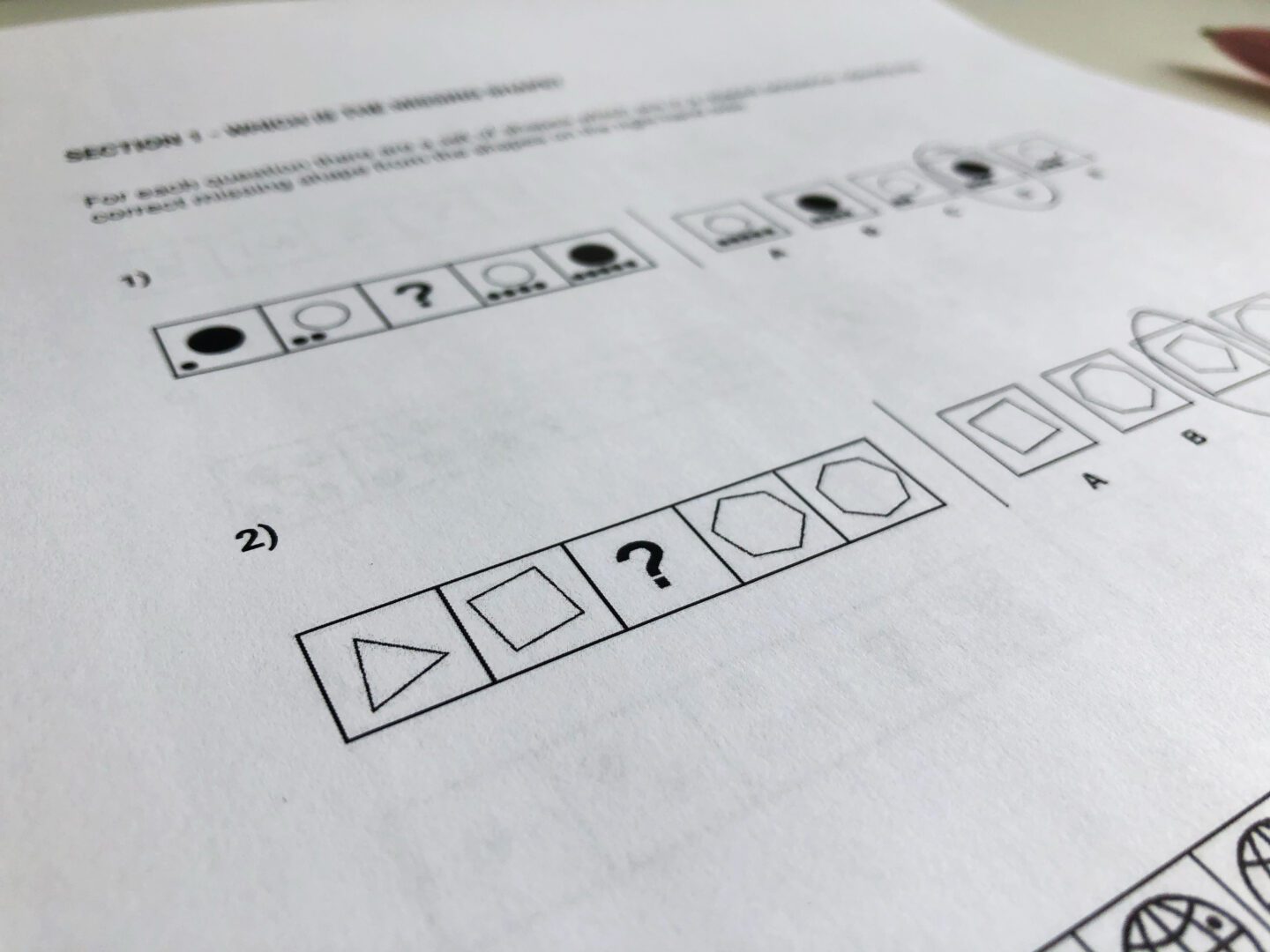
12 Month Programme
We're here to help you and your child navigate the admissions process from start to finish.
12 Month Programme
Here at Mentor Education, we specialise in school admissions, in particular the 11 Plus. Our results speak for themselves, with 90% of our 2020-21 cohort achieving their first-choice school and 100% receiving an offer from their first or second choice school.
The key to this success is our annual programme that builds each year, from January of Year 5 to the January of Year 6. Encompassing the whole 11+ syllabus, the programme covers all disciplines tested in the exams themselves, plus exam technique and question practice. This allows young children to develop at an appropriate pace, with no element of cramming.
We see your journey in three distinct phases and have organised our work to support you at each of these.
Our School Entrance Coordinator
One of the main advantages of working with a full-service agency is that we can coordinate your whole school entrance journey. Our dedicated coordinator works to get to know you, your child and your aspirations. We can flex our services to reflect what you need at any point in your journey.
If you don’t know where to start or don’t know if your child is a good candidate for senior school entrance exams, our Coordinator can arrange an academic assessment brimming with data points to help you make decisions, target schools and focus tuition only on where your child needs it.
If your child’s needs change throughout the year, our Coordinator can swap out a general tutor, bringing in Reasoning experts or scholarship experts as needed.
Essentially, our School Entrance Coordinators job is to stay close to your journey and assist every step of the way.
Phase One: January to Easter Year 5
Learn the core syllabus and fill any gaps. Begin practising Reasoning
One of the most difficult aspects of the 11+ is that children need to have learnt the whole of the Year 6 Maths and English syllabus by the January of Year 6. Prep schools often gear up for this by teaching the Year 6 syllabus to their cohorts by the end of Year 5, leaving the Autumn of Year 6 free to practice papers and work on exam technique. However, this should not be assumed. Parents need to be careful in ensuring the whole syllabus is covered in time. Children simply cannot score marks on topics they have not been taught.

State primaries do not teach children the required Year 6 syllabus early. Parents with children at state schools need to make alternative arrangements for this extra work.
Find more details about the Maths Syllabus and the English Syllabus.
Reasoning
Verbal and Non-Verbal Reasoning are an important and growing part of school entrance exams as schools test more for innate ability and potential rather than learned knowledge. Again, prep schools often practice Reasoning, but state primaries are unlikely to. In both instances parents need to understand the required standard and ensure that their child learns Reasoning techniques, masters the key question types and can work through Reasoning papers at speed. Aim for a mark a minute as a rule of thumb.
Phase One – How can we help
At the beginning of their journey, parents are often looking for guidance about whether their child is a suitable candidate for this difficult test and which schools might be appropriate for their son or daughter.
We offer the most data rich, well regarded assessments available to answer these questions.
Academic Assessments
We are one of very few agencies licenced to use Cambridge University or CEM tests, which benchmark children against their peers in English schools. The great advantage of this is that parents can get a real sense of where their child might be placed outside of their class bubble.
Another great benefit of the CEM Academic Assessments is that CEM also work with over 70% of British Independent schools, providing their entrance exams and so this is a diagnostic test with real relevance.
The CEM test is an adaptive, digital test that children take in 5 modules over weekend in a very relaxed way. It is not stressful for them.
Tuition
We recommend you begin tuition a year before your child sits their entrance exams. This time frame allows your child to assimilate the Year 6 Maths and English syllabus, learn Verbal and Non-Verbal Reasoning, practice enough questions and develop exam technique over the year with their tutor.
Most parents start with a tutor once a week, unless they feel their child is behind. Often, they will move to a tutor twice a week for the summer term of year 5 and over the summer holidays, finishing with a big push in the Autumn term of Year six when Pre-tests and Assessments begin.
At Mentor it is all about great teaching and our tutors experts with oodles of school entrance experience. Handpicked, they share Mentor’s values that developing confidence and a love of learning is key to success. All tutors are fully checked (DBS and references) and have proven results.
Workshops
Learning in groups offers varied perspectives and ideas. Mentor’s popular courses offer your child an excellent all-round boost. The ability to tackle certain questions is key, and our teachers will give them the tools and tips to solve problems confidently and systematically. Suitable for Year 5 pupils preparing for selective schools inc: Alleyn’s, City, DC, Emanuel, GDST, JAGS, KCS and the Grammars.
Phase Two Summer Term of Year 5 and summer holidays
Begin question practice and working through past exam papers
Once children have been taught all the topics on the syllabus, they need to practice questions extensively to gain familiarity, confidence and speed.
For example, they may have understood how to solve fractions when taught as a discreet topic and solved them mathematically. But, in entrance exams they will need to unpick wordy questions to work out the underlying fraction problem they need to solve. There will be both simple and wordy questions, alongside more complex fraction questions with multiple tricks written into the question.
CEM or GL Assessment question bank resources
Parents should by this point have a clear idea which schools their child will be applying for and will now be able to research whether CEM or GL Assessment are setting the school tests. There may be a mixture of both. It is preferable to use the resources which mirror the test. Both CEM and GL Assessment resources are widely available.
We suggest you buy the resources that best reflect the exam of your first-choice school.
Past Papers
During the summer term of Year 5 we suggest you download and print off all the past papers available on your target schools’ websites. This will hopefully be at least two for each school. Also try and work out some proxy schools of about the same academic standard and download these too. Then sort them from the easiest to the hardest papers, leaving your number one school choice until last. We also have our own range of practice papers available for you to download.

Create a spreadsheet, noting all the exam papers you have and work backwards from the date of the exams, placing a date for each paper to be completed at regular intervals. Start with the easiest papers and work towards the hardest. Hopefully, this will mean your child completes 1-2 papers per week over the summer holidays and into the Autumn term. Start earlier if you need to.
For this phase, don’t worry too much if your child takes longer to complete the past papers. It is more important that they work through all the questions.
During the Summer Term we propose that on a weekly basis your programme of work is something like this:
Comprehensions and Story Banks
The English past papers will normally consist of a comprehension and a creative writing story. It is vital that over the summer, your child develops a story bank gradually over this period using past papers as story prompts. If your child is tired or busy one week, maybe they can just plan the story, or write the first and last paragraph, all of this is very helpful.
Again, know your target schools’ English exam. Read their past papers. Many schools will stick to a repeated formula in respect of comprehension styles and story prompts. Some schools will always select a classic text for their comprehension, knowing the difficult vocabulary and syntax will challenge applicants. Or, some schools often use a non-fiction text such as a newspaper article, again providing vocabulary challenges for children who are used to fiction only.
Similarly, with story prompts, schools often stick to a formula that works for them. Some schools repeatedly using pictural stimuli and others regularly include part of a story, asking candidates to continue the piece.
Summer holidays
Don’t forget that your child will need to wind down over the summer holidays and be rested ahead of a pressured start to Year 6. This should not be underestimated. The object of the summer holidays therefore is to maintain momentum. The best way to do this is to keep your tutor coming over the summer and ask them to set your child work to complete each week.
You can also encourage your child to read lots over the holidays. Try and help them access more challenging books, such as classic texts, to help their vocabulary and comprehension skills. Children with more sophisticated vocabularies also perform better on their Verbal Reasoning papers.
Phase two – How can we help
Summer course
Get back on track with your entrance exam prep. Our summer course helps children refocus and ramp up with their practice. Our teacher will help children to consolidate the syllabus fundamentals and develop the higher-level skills required to tackle the harder aspects of the syllabus. Get more information and course dates.

Tuition
We offer tuition over the summer holidays and can transition your lessons online to help you maintain momentum whilst you are away in the UK or abroad. Most of our families opt for tuition twice a week over the summer holidays.
Phase Three, September to January
This phase is all about exam technique and speed.
At this point your child should be secure in their subject knowledge. They should have practiced lots of questions and be familiar with typical exam papers.
They must now be taught the basics of exam technique in an age appropriate way. The most important concepts for them to grasp are:
- Leaving questions they don’t understand or are struggling with and come back to them if they have time at the end
- Giving an answer for every multiple choice question, guessing if necessary
- Taking appropriate time on each question relative to the marks available.
These concepts are hard for children and they must practice them over time.
It is important for parents to check the style of answer sheets and make sure their child has come across them before their exam day. Some tests are multiple choice answer sheets to be fed into a computer for marking and it is particularly important that children know how to fill these out if they need to.
Speed
We cannot stress how important it is that all concerned in a school entrance campaign are fully cognisant of how fast children need to perform in the exam. We believe this is one of the major reasons that children fail their entrance exams. They know their stuff, but they can’t work their way through the questions quick enough to get to the hard questions at the end, where they can really show their abilities and differentiate themselves.

We find this problem particularly acute in children who attend state primary school as they are less likely to have been regularly tested in school under exam like conditions and under time pressure.
Stress and Anxiety
For many children, the pressure really kicks in during the Autumn term and it is an important part of your job as a parent to protect your child from this to the extent you can. Make sure your child is getting fresh air and regular exercise, enough sleep and social time.
Be aware of what you are saying in front of them in respect of their impending exams and where they may go to school next year. We know that there can be a frenzy amongst school cohorts at this time. Children in school can also be stressed and make inappropriate comments in the playground.
You must reassure your child that you are proud of them wherever they go to senior school and praise them for their efforts and not their results. Help keep them motivated with treats and a lovely present when all their hard work is over.
How we can help – Phase three
1. Academic Assessments. Many students start their journey with an academic assessment. This provides a very clear picture of the level your child is working at and where they need to improve. Mentor Education is one of the few UK agencies to offer the CEM Academic Assessment, a digital test that helps to identify a child’s potential. This test is used by over 70% of the top Independent schools as part of their selection process at 7+ and 11+.
2. One to One tuition. 70 – 80% of children preparing to sit school entrance exams are being tutored. You need to find a tutor with experience in school entrance to the most competitive London schools. We can provide you access to the most effective tutors, giving your child the best preparation ahead of exam day.
3. Mock Exams. Oct, Nov and December dates. Helping your child to feel confident in a test setting, under timed conditions. Detailed reports will include critical last-minute advice.
4. Interview Technique. Children learn to express their ideas and present their best self. Group classes with an interview specialist, covering an assortment of subjects and unique activities.
AND FINALLY… Mentor Education are incredibly proud that over 90% of our 2020 tutees gained places at their first-choice schools, with many scholarships!
Get in Touch
If you’d like to know more about how we can help your child to fulfil their potential, please get in touch.
“If you’re the kind of parent that believes confidence building is a key part of a child’s journey to academic success, and you’re attracted to highly principled companies, then you’ll be right at home with Mentor Education”
— THE GOOD SCHOOLS GUIDE REVIEW
-
Give us a call
020 8883 2519 -
Email us
hello@mentoreducation.co.uk -


